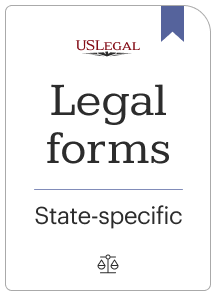

Section 1445 of the Internal Revenue Code provides that a transferee of U.S. real property interest must withhold tax if the transferor is a foreign person. To inform the transferee that withholding of tax is not required is upon the disposition of a U.S. real property, this affidavit may be executed. Florida Seller's Affidavit of Nonforeign Status is a legal document that provides proof of a seller's United States residency or non-foreign status. This affidavit is commonly used in real estate transactions to comply with the Foreign Investment in Real Property Tax Act (FIR PTA). FIR PTA requires the buyer or the buyer's agent to withhold a percentage of the sale proceeds and remit it to the Internal Revenue Service (IRS) if the seller is a foreign person. The Florida Seller's Affidavit of Nonforeign Status serves to confirm that the seller is indeed a U.S. citizen, a U.S. resident alien, a U.S. corporation, or a U.S. partnership. By signing this affidavit, the seller declares under penalties of perjury that they are not a foreign person as defined by the IRS regulations. There are variations of the Florida Seller's Affidavit of Nonforeign Status, such as: 1. Individual Seller's Affidavit of Nonforeign Status: This type of affidavit is used when the seller is an individual who is either a U.S. citizen or a U.S. resident alien with a valid Social Security Number or Individual Taxpayer Identification Number (ITIN). 2. Corporate Seller's Affidavit of Nonforeign Status: This affidavit is utilized when the seller is a corporation incorporated in the United States. The corporation must provide its Employer Identification Number (EIN) and state its U.S. citizenship. 3. Partnership Seller's Affidavit of Nonforeign Status: This type of affidavit is applicable when the seller is a partnership formed under U.S. laws. The partnership is required to disclose its EIN and state that it is a U.S. partnership. It is crucial to accurately complete the Florida Seller's Affidavit of Nonforeign Status to ensure compliance with FIR PTA regulations. Failing to comply with FIR PTA requirements may result in penalties, interest, and potential legal consequences. Hence, it is advisable to consult a real estate attorney or a tax professional to accurately complete the affidavit and fulfill the necessary obligations.
Florida Seller's Affidavit of Nonforeign Status is a legal document that provides proof of a seller's United States residency or non-foreign status. This affidavit is commonly used in real estate transactions to comply with the Foreign Investment in Real Property Tax Act (FIR PTA). FIR PTA requires the buyer or the buyer's agent to withhold a percentage of the sale proceeds and remit it to the Internal Revenue Service (IRS) if the seller is a foreign person. The Florida Seller's Affidavit of Nonforeign Status serves to confirm that the seller is indeed a U.S. citizen, a U.S. resident alien, a U.S. corporation, or a U.S. partnership. By signing this affidavit, the seller declares under penalties of perjury that they are not a foreign person as defined by the IRS regulations. There are variations of the Florida Seller's Affidavit of Nonforeign Status, such as: 1. Individual Seller's Affidavit of Nonforeign Status: This type of affidavit is used when the seller is an individual who is either a U.S. citizen or a U.S. resident alien with a valid Social Security Number or Individual Taxpayer Identification Number (ITIN). 2. Corporate Seller's Affidavit of Nonforeign Status: This affidavit is utilized when the seller is a corporation incorporated in the United States. The corporation must provide its Employer Identification Number (EIN) and state its U.S. citizenship. 3. Partnership Seller's Affidavit of Nonforeign Status: This type of affidavit is applicable when the seller is a partnership formed under U.S. laws. The partnership is required to disclose its EIN and state that it is a U.S. partnership. It is crucial to accurately complete the Florida Seller's Affidavit of Nonforeign Status to ensure compliance with FIR PTA regulations. Failing to comply with FIR PTA requirements may result in penalties, interest, and potential legal consequences. Hence, it is advisable to consult a real estate attorney or a tax professional to accurately complete the affidavit and fulfill the necessary obligations.